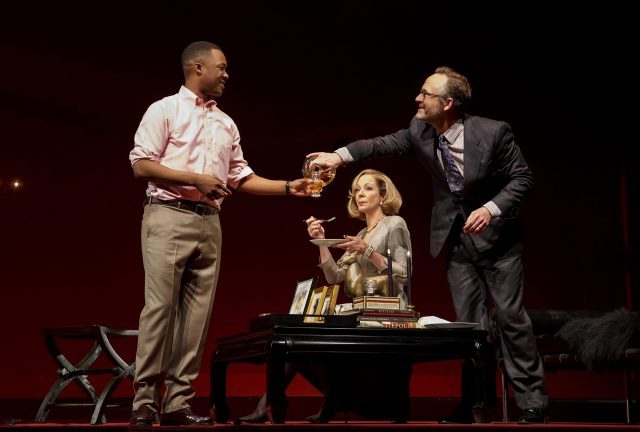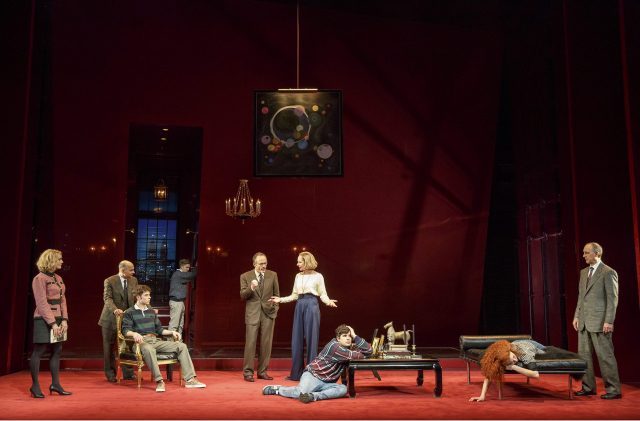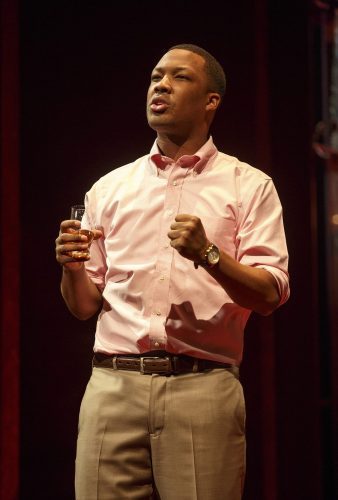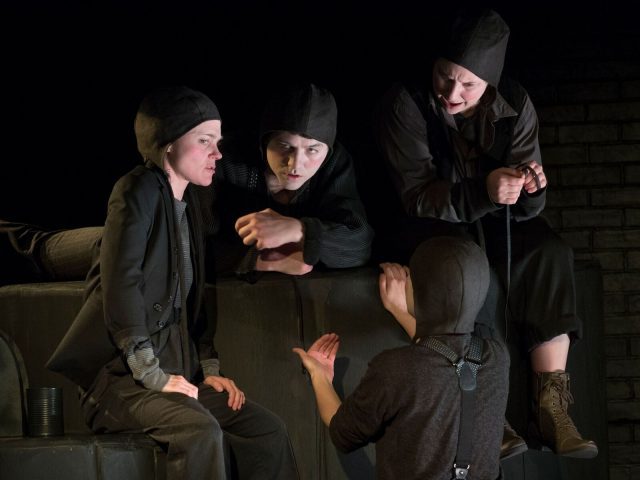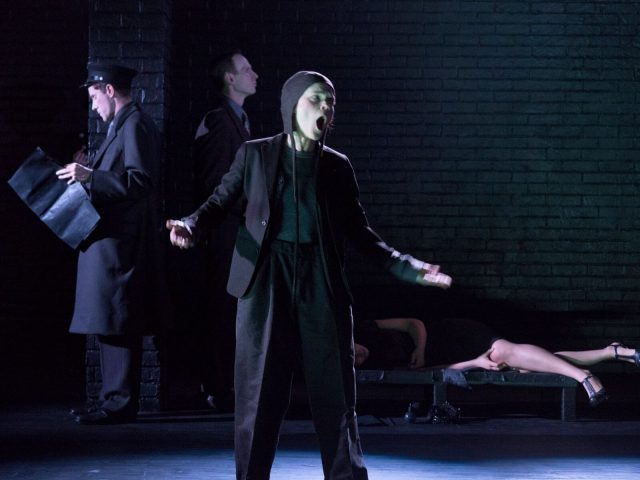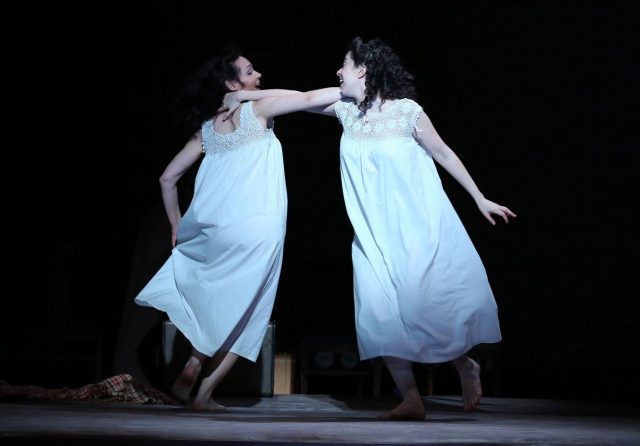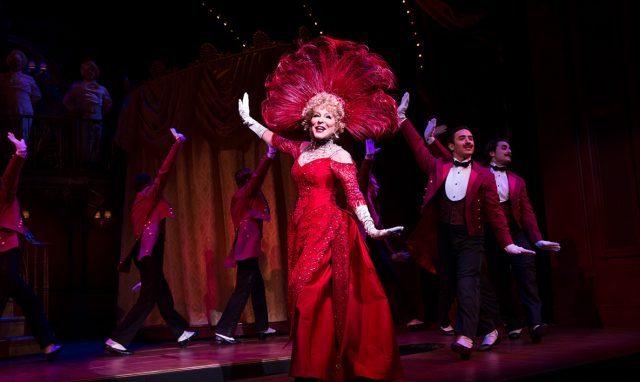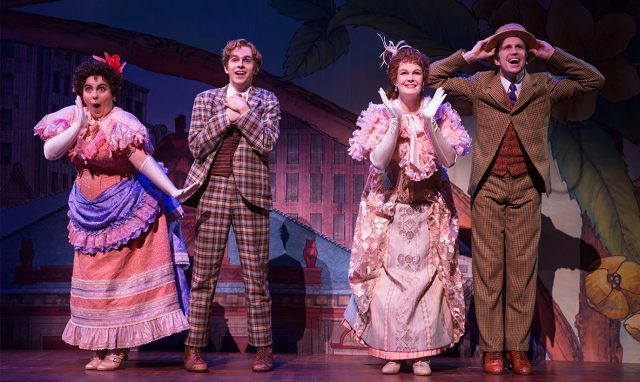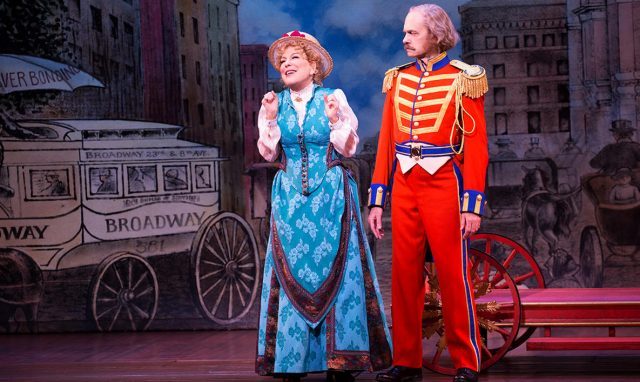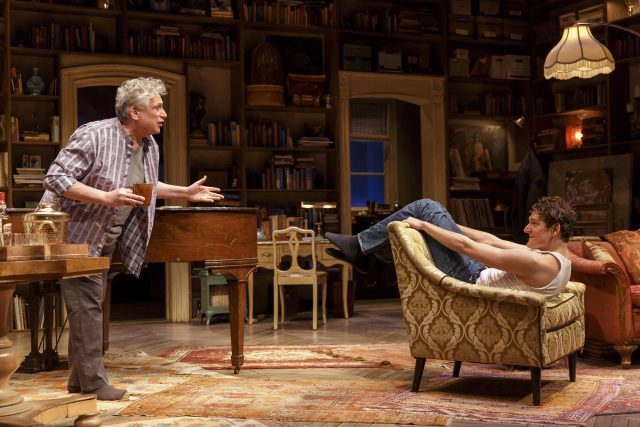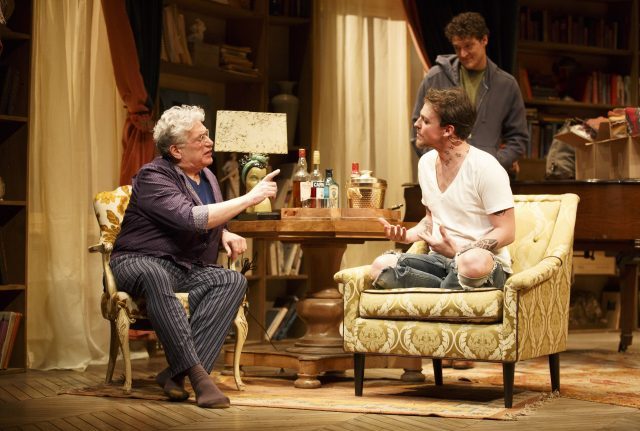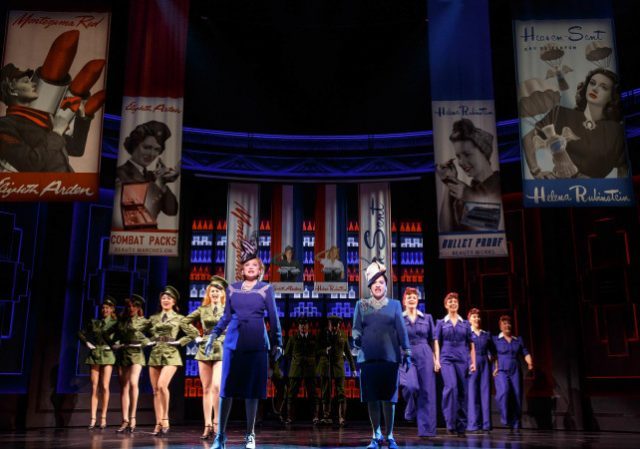
Elizabeth Arden (Christine Ebersole) and Helena Rubinstein (Patti LuPone) battle it out during the war effort in War Paint (photo by Joan Marcus)
Nederlander Theatre
208 West 41st St. between Seventh & Eighth Aves.
Tuesday – Sunday through September 3, $65-$179
877-250-2929
www.warpaintmusical.com
War Paint is everything it should be and more. Inspired by Lindy Woodhead’s 2004 book and Ann Carol Grossman and Arnie Reisman’s 2009 documentary, The Powder & the Glory, this knockout Broadway musical pits not only fashion doyenne Helena Rubinstein against Elizabeth Arden but Tony-winning divas Patti LuPone, as the former, against Christine Ebersole, as the latter. And everyone wins, especially the audience. Rubinstein (1872-1965) and Arden (1878-1966) were fierce rivals in the cosmetics industry, bringing a new conception of feminine beauty to America while also breaking barriers for women entrepreneurs. The show, which takes place between the late 1930s and the early 1960s, focuses on how sharply different each was from the other, although they both sought the same things: power in a man’s world, as a woman. Rubinstein was a tough, gruff Jewish immigrant from a Polish shtetl, while the blonde Arden hailed from an impoverished Canadian farm. While Rubinstein made such proclamations as “There are no ugly women; only lazy ones,” Arden made such demure statements as “Remember, girls! Every woman has a God-given right to loveliness!” In the show, they battle over new products, secret ingredients, location, Senate investigations, and even sales managers; at one point, Elizabeth’s husband, Tommy Lewis (John Dossett), feeling neglected, jumps ship to work with Helena, so Helena’s right-hand man, Harry Fleming (Douglas Sills), is quickly snatched up by Elizabeth. David Korins’s darkly bold changing sets include a wall of glowing cosmetic bottles, a movable red door representing Arden’s lush salon, portraits of Rubenstein done by famous artists, and a restaurant where both women dine and where they reveal many of their fears. Catherine Zuber’s costumes are exuberant, as are David Brian Brown’s wigs and Angelina Avallone’s makeup, while Christopher Gattelli’s choreography has ravishing moments of razzle-dazzle; all of those elements come together for a terrific number about Helena and Elizabeth’s involvement in the war effort (“Necessity Is the Mother of Invention”) as well as such other fun songs as “Behind the Red Door” and “Back on Top,” featuring the talented ensemble, who all play multiple roles, including such standouts as Mary Ernster as the Society Doyenne, Joanna Glushak as Magda, Barbara Marineau as the Grand Dame, Angel Reda as the Heiress, Mary Claire King as Miss Beam, and Erik Liberman as Charles Revson.
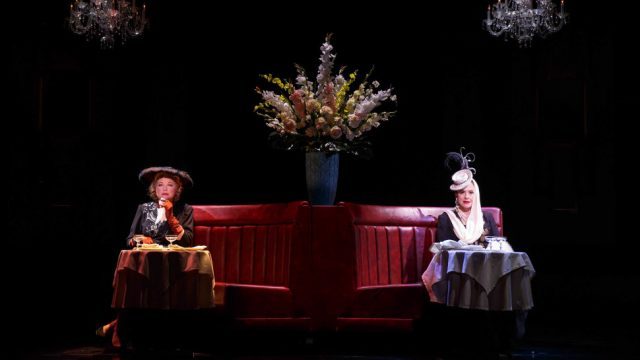
Elizabeth Arden (Christine Ebersole) and Helena Rubinstein (Patti LuPone) pause for a rare quiet moment in their lavish yet complex lives (photo by Joan Marcus)
The book, by Doug Wright (I Am My Own Wife, Hands on a Hardbody), does an excellent job of condensing the story into a fast-paced two and a half hours, giving equal time to each side of the conflict. The music, by Scott Frankel, and lyrics, by Michael Korie, who previously collaborated on such shows as Far from Heaven, Doll, and Happiness and teamed up with Wright on Grey Gardens, are fanciful and exhilarating, propelling the story while allowing the stars to shine, and shine they do; LuPone (Gypsy, Evita), Ebersole (Grey Gardens, 42nd Street), Dossett (Gypsy, Giant), and Sills (The Scarlet Pimpernel, Little Shop of Horrors) are the fiercest foursome on Broadway today, chewing up the colorful scenery and spitting it out with verve and style, although the show, of course, belongs to the women. Early on, Harry suggests to Helena, “Perhaps this time you’ll drop by the Red Door and introduce yourself? Maybe even make nice?” to which Helena responds, “The Ford should meet the Studebaker? The Macy’s should take tea with the Gimbel’s?” In real life, Helena Rubinstein and Elizabeth Arden actually never met; thank goodness this show brings them together for posterity.
